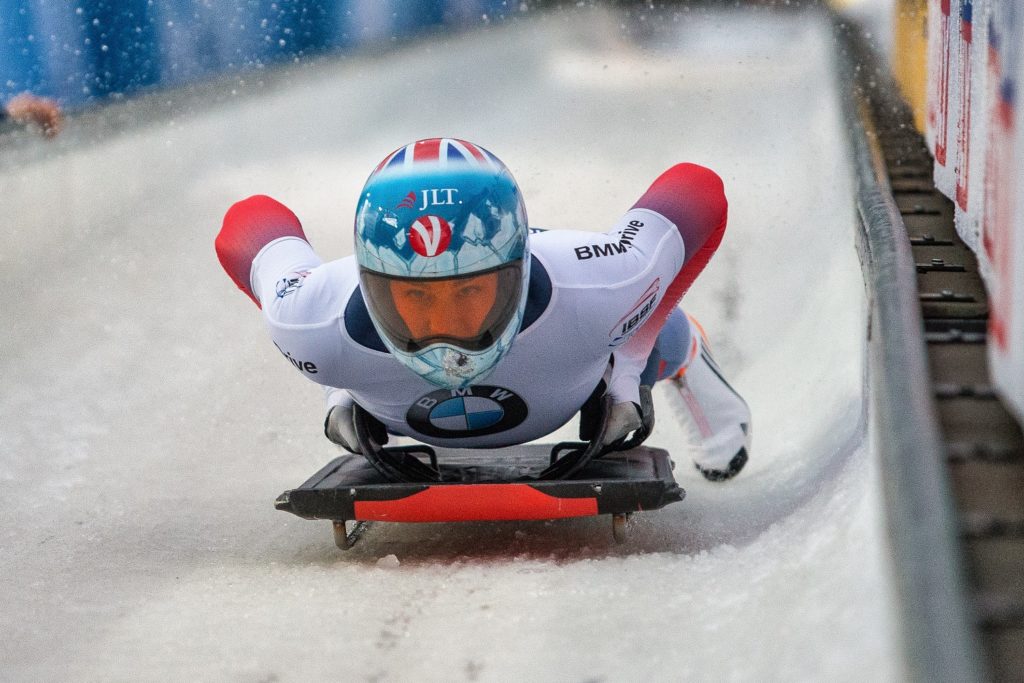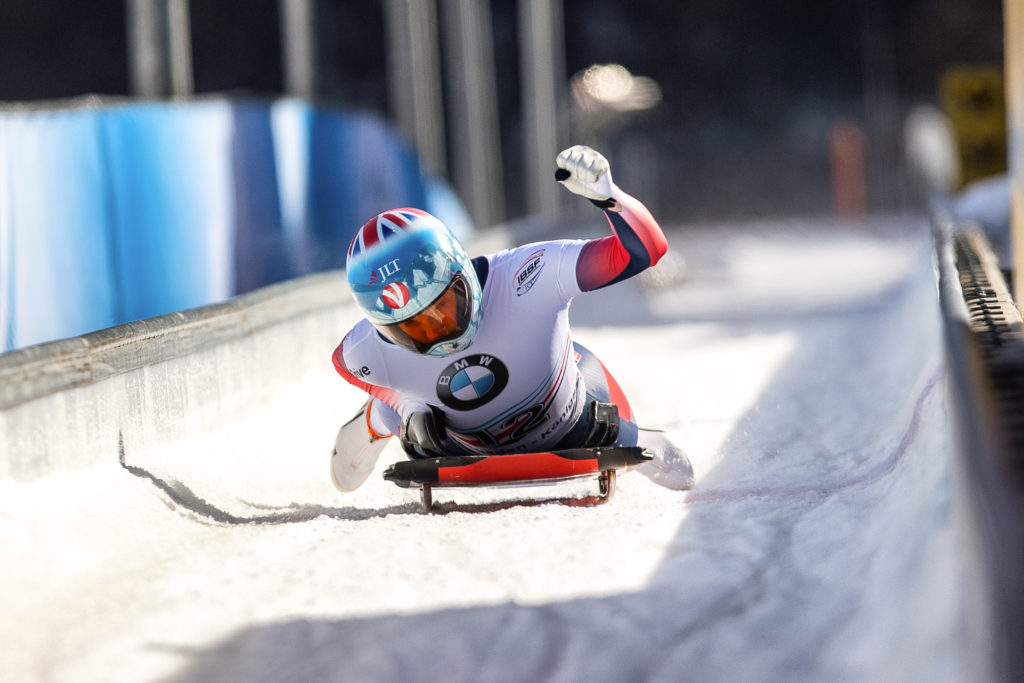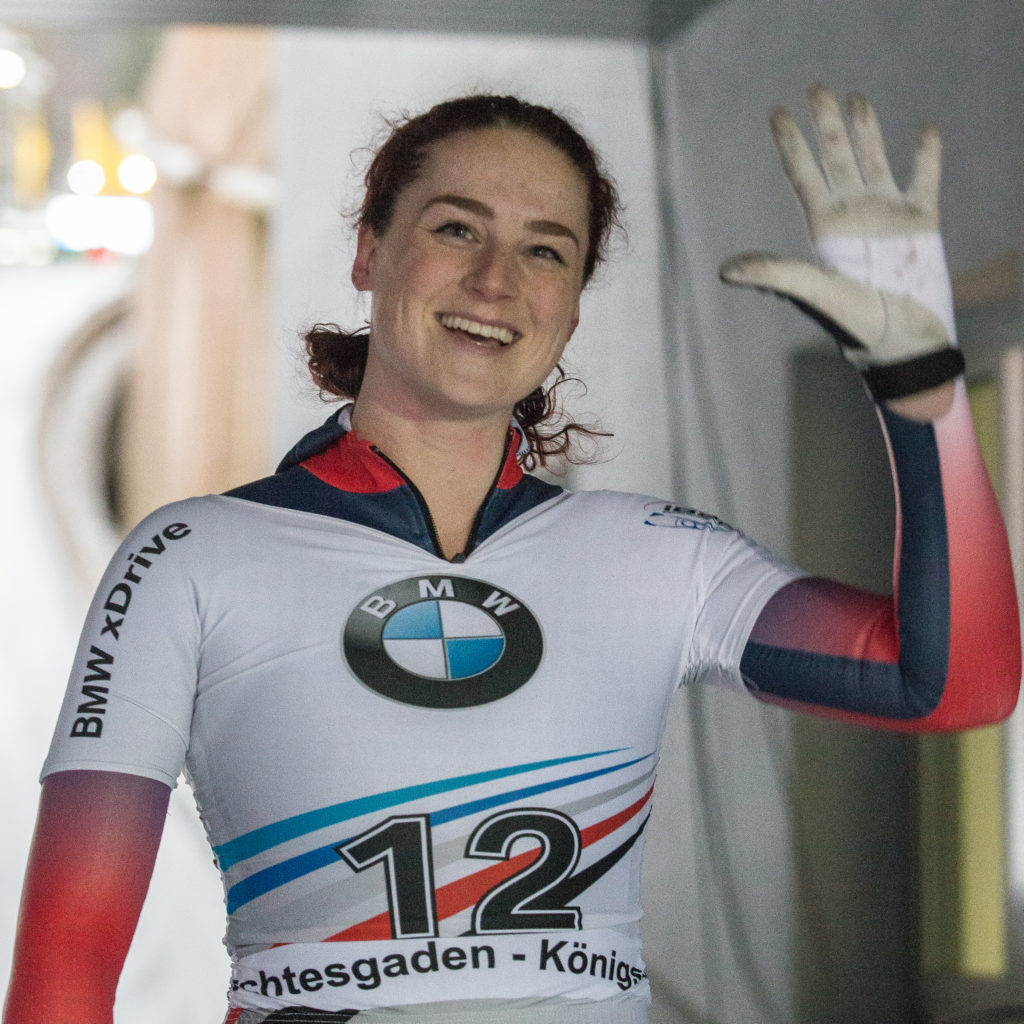
Welcome back, fellow afflicted, to the post-Games recovery clinic. If like me you’re struggling to get over the spectacle of the Winter Olympics, then join me for continued treatment as we look back on Pyeongchang through the goggles and visors of its participants.
Today’s guest is Skeleton bronze medal winner Laura Deas, who’s back on Planet Earth having ensured Team GB shared two thirds of the podium at the Alpensia Sliding Centre alongside friend and team mate Lizzy Yarnold.
While the pre-Games hopes of a nation lay heavily on Lizzy’s shoulders – could she retain the Olympic title accomplished at Sochi? – there was a rapidly evolving clamour that Laura might emerge from Pyeongchang with a medal of her own. Never mind the expectations of her country: Laura’s Olympic campaign was already steeped in pressure thanks to her own aspirations.
“I went in with the aim of winning a medal,” she tells me. “I said before that if I came away without one I would be disappointed and that’s definitely true! I wasn’t sure how overwhelming I’d find the Olympic environment but actually I found it really inspiring and I think that helped me be really focused when it came to competition.”
With multiple podium finishes on the World Cup circuit and a world ranking of sixth heading into her first Olympic Games, Laura’s ambitions were justified.
But ambition is one thing; the reality of winning Olympic bronze was another sensation entirely.
“It was an unbelievable moment of joy and relief – especially because Lizzy was there too and we were both so overjoyed for each other. It was the fairytale ending to our Olympic campaign – we both knew we could win medals but for it to actually come together on the day like that was unreal – it took a long while to sink in that we’d made history together and we’d been part of a ‘super Saturday’.”
For all those involved in the Winter Olympics, in any Olympics, there is a proceeding and inevitable return to earth after the curtain falls on the closing ceremony. I can only wonder that, after an athlete’s maiden Games, that landing must be near-concussive.
Unless you don’t really land at all.
“I’m not sure yet!” Laura says when I ask how her performance at the Olympics has changed her life. “I’ve had so many messages, especially from young people, that I’ve inspired them and that feels pretty amazing. I’m definitely enjoying the pressure being off my shoulders and having time to do other things besides training! And I’m also enjoying planning my forthcoming wedding.”
It sounds like the perfect ending to a stellar season and there’s good reason for that. If Laura’s personal outlook is set fair, the future of the sport she’s made her own is equally auspicious. Having previously interviewed bobsleigh ladies Mica Moore and Mica McNeill, I’ve seen the issue of budget constraints displayed in sharp relief (the pair had to self-fund their pre-Olympic qualifying season). Results are everything and medals are worth more than their weight in gold, silver or bronze. With that in mind, the significance of team GB’s double podium finish was anything but inconsequential.
“I think it was important to show that we could deliver results at the highest level – for our programme it’s all about winning Olympic medals so I was happy to prove that the investment in us was well spent,” she says. And it wasn’t only GB’s current sliders that it mattered to: “We have a fantastically talented squad of young athletes who are the future of our sport so I’m excited to see how they progress in the next few years.”

In the more immediate times ahead though Laura, and of course Lizzy Yarnold, look to have a firm foothold on skeleton competition. Lizzy of course has two Olympic golds to complement her World Championship, European Championship and World Cup titles. She is skeleton’s leading lady. Nevertheless, or perhaps because of that, I can’t help but wonder about the pressure on Laura to usurp her friend and team mate some day down the line.
“I’m not feeling that at the moment,” she assures me. “But I’m very competitive so as soon as I’m back competing I’ll want to be consistently on that podium!”
As an aspiring athlete that might be where you see yourself one day: on a podium. You might even have a specific podium in mind at the completion of a specific competition, in a specific discipline. But take caution: over-focusing is something Laura counsels against.
“I’d say to do something you enjoy to the best of your ability and don’t specialize too early,” she advises. “I did several sports at a fairly high level until I was selected for skeleton at 20 and it definitely gave me a good skill set and plenty of experience, so don’t panic if you don’t think you’ve found your sport yet. Also, register your interest with UK Sport’s Talent ID scheme, there’s one running now called ‘Discover Your Gold’.”
You heard it, and from an undeniably reputable source. So if you’ve got the drive, go and find out if you’ve got the tools.

My thanks to Laura for her time. If you’d like to know more you can keep up with her (though probably not literally!) at the following feeds:
Twitter: @skeletonlaura
Facebook: /skeletonlaura
